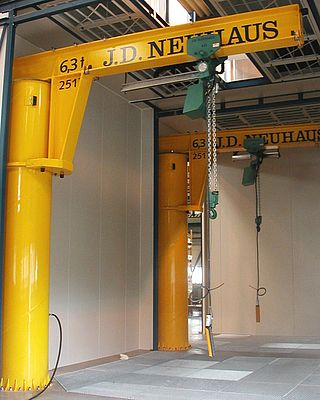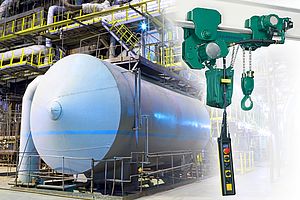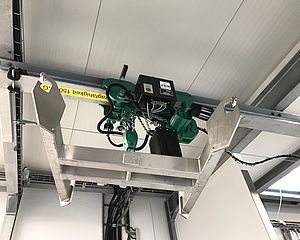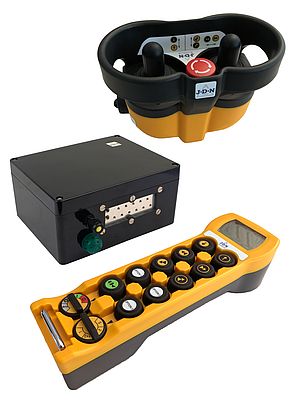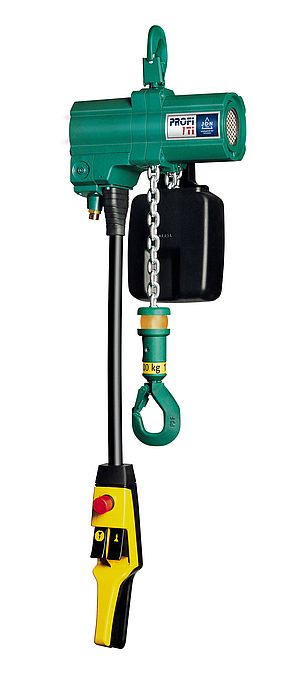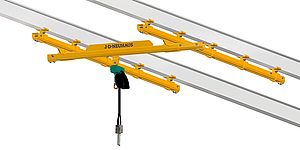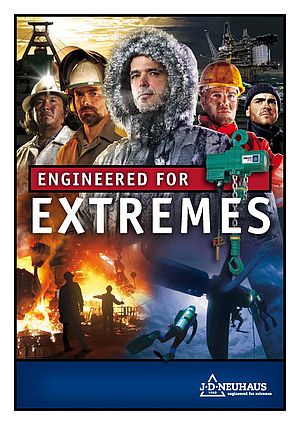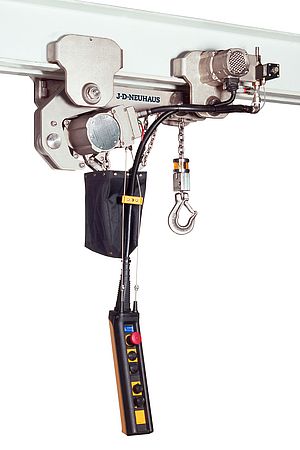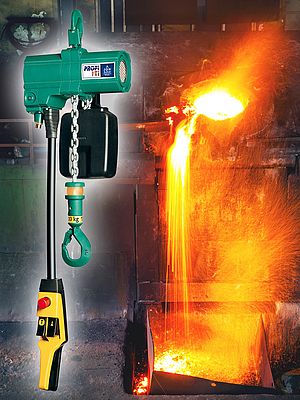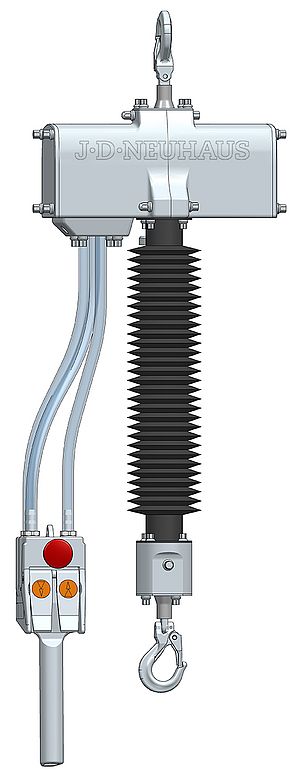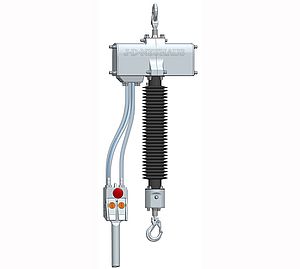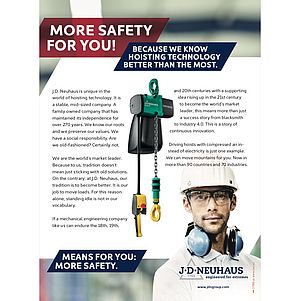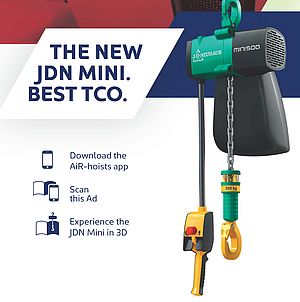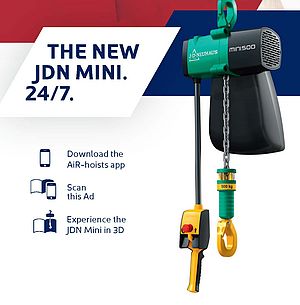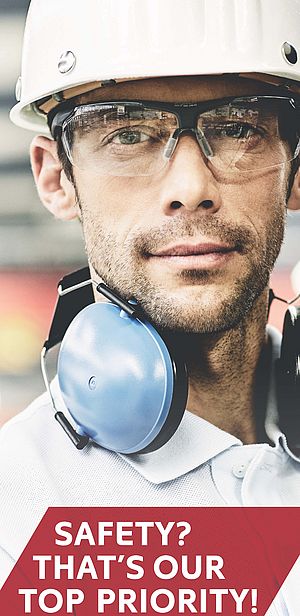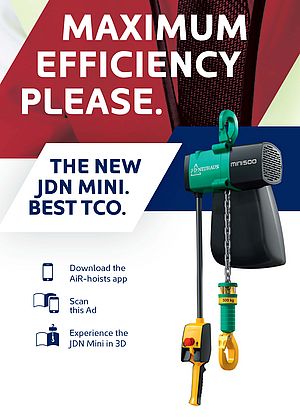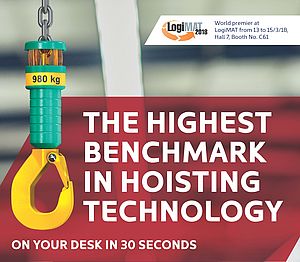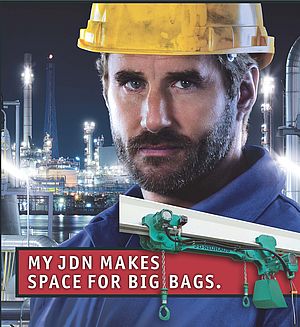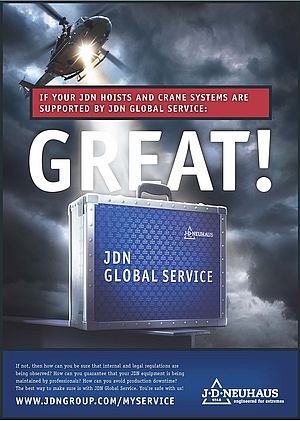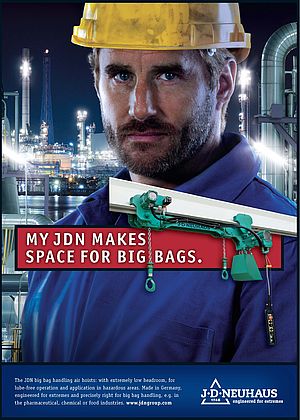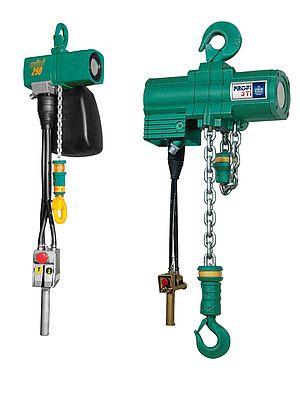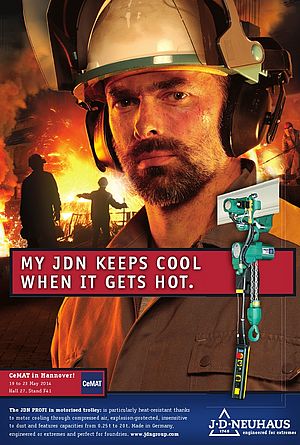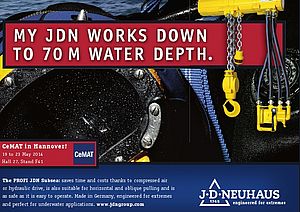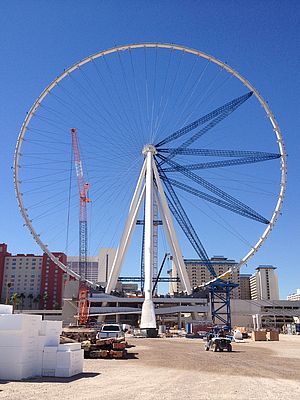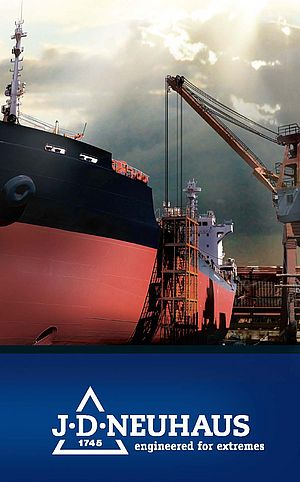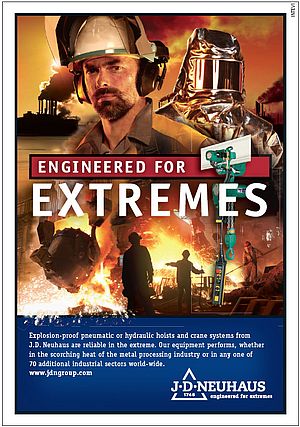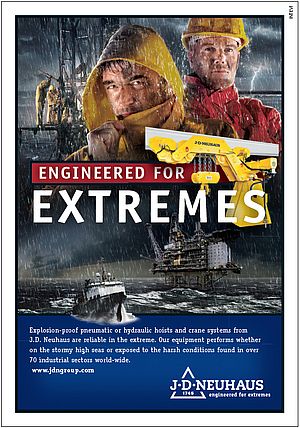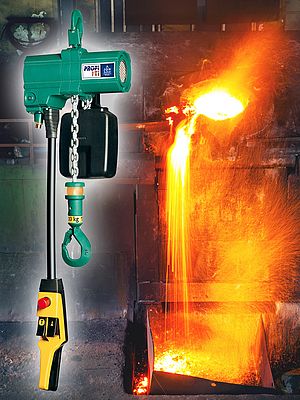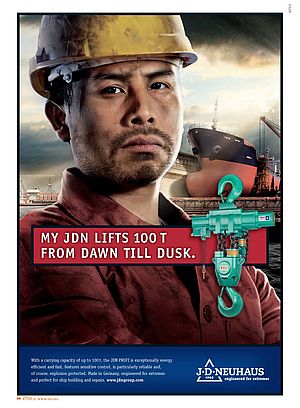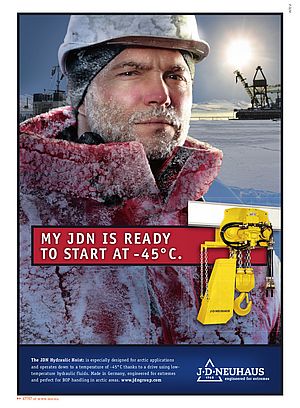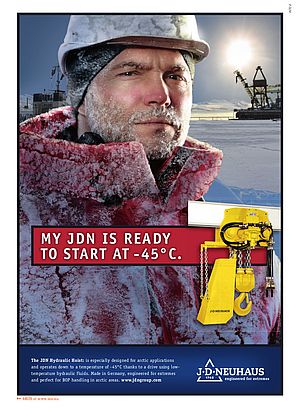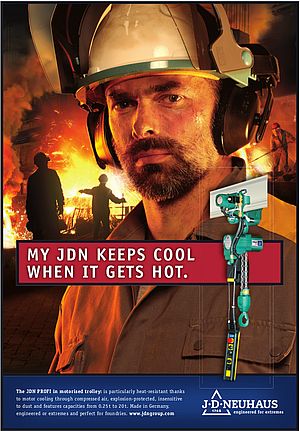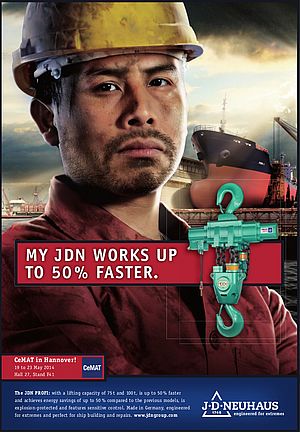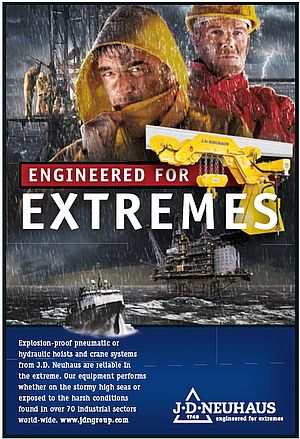The crane systems manufactured by J D Neuhaus are designed for arduous operating conditions. Industry applications include oil and gas exploration and processing locations, both on and offshore, where explosion-proof operating conditions are paramount. The JDN equipment is also suitable for safe operation in a wide range of industrial and commercial activities.
Standard crane systems
Typical standard crane systems currently available include: overhead cranes with single or double girder design; underhung cranes including low headroom design; jib cranes; cranes with in-line mechanically linked synchronised hoists; cranes with parallel operating hoists; crane capacities up to 100 tonnes; crane operation spans up to 36 metres.
Main features
The J D Neuhaus cranes and hoists are resistant to dust, humidity and aggressive atmospheres as standard, operating within a temperature range of -20°C to +70°C. They provide 100% duty ratings with no downtime and only minimal maintenance requirements. Overload protection and fail-safe braking are incorporated with emergency-stop safety features. Special limit switch arrangements for end-travel, anti-collision and protected zone status can also be incorporated as required.
Applications and classifications
JDN crane systems have been utilised in many general engineering operations ranging from typical heavy duty operations like power plants, refineries, sawmills, foundries, shipyards to even explosives and pyrotechnics manufacture. The Ex classifications applicable to the JDN products according to EC Directive on Hazardous Locations 2014/34/EU are EX II 2 GD IIA T4 / II 3 GD IIB T4. A higher rating available featuring increased spark protection is EX II 2 GD IIC T4.
Super-silent operation
For general engineering requirements, super-silent operation is available in the hydraulic powered range, while oil or HFC pressure fluids can be used at intake pressures of 100 to 180 bar. Only two supply connections are required per hoist with leakage oil drained internally for maximum safety and cleanliness of the working environment.


